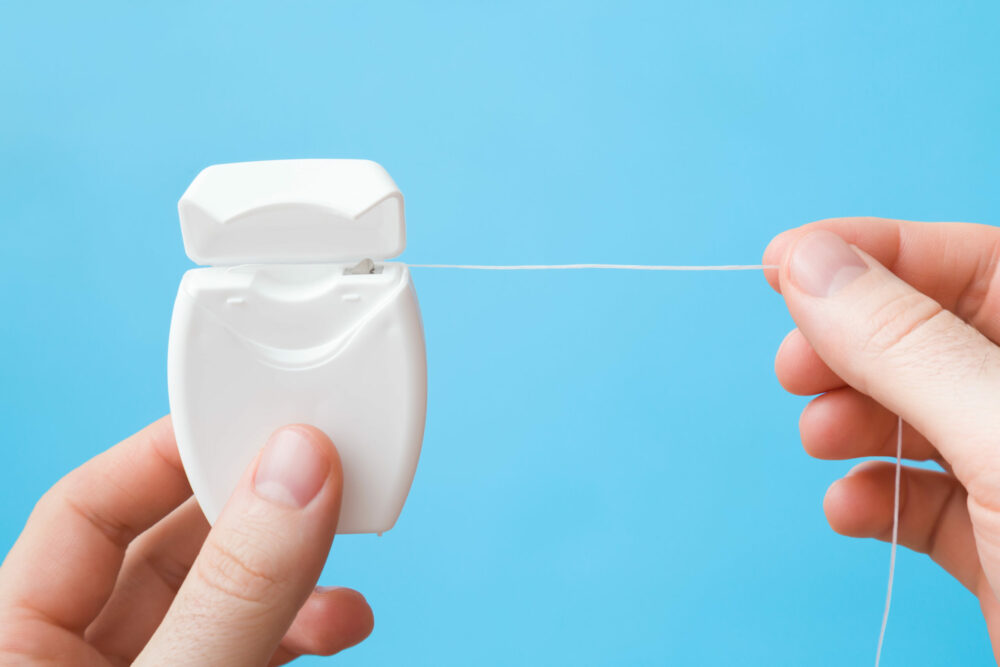
June 16, 2023
Prioritize Dental Care Basics
Some things in life are worth knowing and repeating consistently. That would certainly apply to preventive dental care basics.
On occasion, it is typically a good idea to return to the fundamentals in life. This is especially true in your oral health as you prioritize your dental care.
Following dental care basics is essential to specifically keep your teeth and gums healthy. The basics of dental care are also a key factor in helping you maintain a healthy mouth and overall physical health.

Why it is important to have a healthy mouth
1 – Preventing tooth decay
Dental care basics contribute to good oral hygiene. Daily brushing and flossing are significant to the prevention of cavities and eventual tooth loss caused by tooth decay.
2 – Preventing gum disease
Swelling, redness, and bleeding around your gums are common when developing gum disease. Lack of good oral hygiene and/or lack of treatment could lead to tooth loss.
3 – Maintaining good overall physical health
There is a systemic connection between your oral health and your general, physical health.
- Heart disease
- Stroke
- Diabetes
These are among the reasons you will want to follow dental care basics to reduce your general health risks.
4 – Having fresh breath and an attractive smile
Bad breath could be a common symptom of poor oral health. Thriving bacteria not only affects your breath, oral bacterial growth can also lead to tooth damage.
Damaged teeth have an effect on your oral health and your ability to smile confidently. Good oral hygiene habits help:
- Prevent bacteria growth leading to oral diseases and bad breath
- Improve your self-esteem and smile confidence
Book Your FREE Consultation Today!
To book an appointment for a cleaning, a specific concern or even a friendly consultation fill in the following and we will contact you promptly.
Tips for Basic Dental Care
The previously mentioned benefits are good motivation for applying the common dental care basics. Though you might already be aware of a few of the following tips, a reminder can help confirm their value for maintaining healthy teeth, gums, and overall physical health.
Brush your teeth
This might seem like an “elementary” recommendation but a consistent brushing routine is among the most important tips for dental care.
- Brush your teeth a minimum of two times per day. It is preferable to do so after you eat and prior to bedtime.
- Use a brush with soft bristles and a toothpaste that contains fluoride.
- Brush in a gentle, circular motion away from your gums and hold your toothbrush at a 45 degree angle to your gum tissue as you brush.
- Brush all the surfaces of your teeth such as the fronts, backs, and each chewing surface.
Floss your teeth
This dental care basic is the one most likely to be avoided or practiced infrequently. Keep in mind that flossing your teeth is as essential as brushing your teeth each day.
Dental floss helps remove plaque build-up from your teeth and gums. Flossing also removes food particles that become stuck or lodged between your teeth and that are difficult to reach with the bristles of your toothbrush.
- Floss your teeth a minimum of once per day.
- Use a portion of dental floss that is approximately 12 to 18 inches in length.
- Wrap the floss around your middle fingers and use your thumbs and forefingers to gently slide the floss between each tooth.
Use mouthwash
Mouthwash is an effective support to your brushing and flossing routine. Although mouthwash freshens your breath and can help control bacteria in your mouth, it is not a substitute for brushing and flossing.
- Mouthwash can help reduce your risk of gum infection and gum disease.
- Mouthwash is best used after a meal or before bed but not immediately after brushing. Spacing your use of mouthwash from your brushing routine may prevent the fluoride in your toothpaste from being rinsed away.
Today, there are many different mouthwashes available. Ask your dentist which formulation would be best for you to consider using based on your specific oral hygiene needs.
Monitor your diet
Your food and beverage choices can have an impact on your dental health.
- Eat a balanced diet that contains portions of fruits, vegetables, and lean protein. If you are unsure, using the Canada Food Guide as a resource is a good place to start.
- Watch your intake of foods high in sugar or starch. These can increase your tooth decay and cavity risk.
- When you enjoy sugary foods or beverages do so with a meal or brush your teeth afterwards. This helps reduce the timeframe your teeth are exposed to sugar.
- Remember that it is not purely the quantity of sugar you consume, it is more so the length of time your teeth are exposed to sugar that is most important to minimize.
Schedule regular dental examinations
Your dentist in Winnipeg is prepared to detect any early signs of dental issues. Cavities and gum disease can be diagnosed early, saving you from more serious or costly dental treatment.
- Schedule a dental examination and teeth cleaning at least two times per year.
- Allow your dentist to x-ray your mouth during an examination to pinpoint any potential or current issues with your teeth and gums.
Prevent cavities
Tooth cavities are among the most common dental issues. They are caused by bacteria that thrive within the plaque and tartar build-up on your tooth surfaces.
Oral bacteria produce acid that erodes the protective enamel on your teeth. The good news is that you can prevent cavities and remove bacteria from your teeth and gums.
- Brush and floss regularly
- Limit your intake of sugary foods and beverages
- Schedule annual dental examinations
- Ask your dentist about fluoride treatment and dental sealants to protect your teeth.
Prevent gum disease
Untreated gum disease is among the leading causes of tooth loss. Plaque and tartar that is not removed from your teeth and gum tissue can cause your gums to become infected and inflamed or even cause bone loss.
Gum disease prevention follows much the same preventive habits as those within your overall dental health routine.
- Brush and floss consistently.
- Monitor your diet and lifestyle choices.
- Stay current with your dental examinations.
- Consult with your dentist about gum therapy such as scaling and root planing especially if you have been diagnosed with gingivitis or gum disease.
Prioritize dental care basics to help assure a healthy mouth and body. Our team at Tuxedo Dental Group is equipped and ready to assist you with the basics of dental care for you and your family.
Discover more useful information about dental care basics in the following resources:
Regular Checkups Helped This Patient Avoid Future Issues
Contact your dentist in Winnipeg at Tuxedo Dental Group about the basics of dental care. Schedule your next dental check-up now.